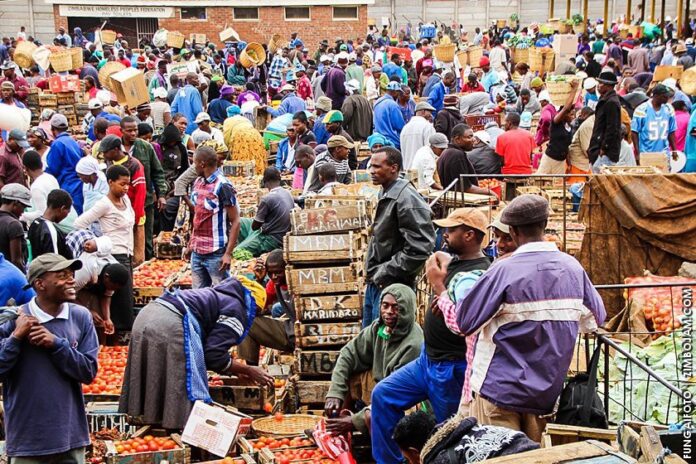Farai Mabeza
Micro, Small and Medium Enterprises in Zimbabwe are facing a long road to recovery during the post-COVID-19 lockdown, according to a survey by an independent policy research group, SIVIO Institute, which shows that the biggest impact of the pandemic on MSMEs was on revenue.
A total of 78 percent of MSMEs indicated that revenue had declined while a further 63 percent indicated they had significant challenges providing goods and services even if they were operating remotely or complying with government protocols as they continued to operate.
The costs of production increased for 22 percent of respondents while 44 percent noted an increase in overheads with up to 53 percent of the respondents indicating that they had their client base affected by the lockdown.
“When the negative impact was explored further the majority (54%) said they would take a long time to recover whilst 31.4% expressed that the impact would be minimal and anticipated they would bounce back quickly,” the survey said.
Only 2.86 percent stated that the atmosphere was conducive for their business to thrive and possibly do even better in future. A few respondents (2.86%) could not gauge the direction they would take at the end of the lockdown.
The majority felt that that impact of the lockdown had negatively affected the viability of their businesses, and none of the respondents anticipated their business would remain the same after the lockdown.
Significant disruptions were noted on the production capacity of MSME’s with close to 70 percent of respondents indicated their ability to produce had been greatly affected. The customer base of 51 percent of respondents was greatly affected while the customer bases of 36 percent of respondents registered a notable shift.
In the areas of security or storage facilities during the lockdown, 50 percent indicated they had not been affected in any way, however 30 percent of respondents reported the impact on this aspect as significant.
“These entities may have had a minimal security cost before since they were always present at their workplaces but because of the lockdown, security in their absence became a significant concern,” the survey noted.
Operational areas moderately affected include the ability to communicate with customers, administration procedures and the availability and willingness of human resources to carry out their duties. كوره نت
The latter is due to the commuting challenges which arose from the banning of all nonessential commercial services including the banning of commuter omnibuses. The official mode of public transport was restricted to personal vehicles or buses serviced by the Zimbabwe United Passenger Company (ZUPCO).
These buses however have a limited passenger carrying capacity and inconsistent schedules which resulted in longer passenger queues and delayed travel times.
The result of these frustrations is that 56 percent of the respondents indicated that they had lost customers to competitors which showed some failure to deliver within agreed timelines on their part because of the restrictions.
Additionally, 25 percent indicated their customers expressed frustration at the impeded service or product delivery. However, 18 percent said their business either experienced no change at all and a further 18 while said they simply shifted to receiving all their orders online to avoid causing the customers frustration.
On how they intended to address the challenges, the majority (55%) said they were employing a wait and see approach with 47 percent eager and ready to resume business in the shortest possible time. Some of the respondents (41%) indicated they would like to move their business online.
A small portion, representing five percent of the sample, had no plans or any idea what their next move would be and how they could address the frustrations expressed by their customers.
The lockdown in Zimbabwe has morphed over the months from the time it was announced at the end of March and to date the imposed lockdown remains indefinite although it has been relaxed significantly with 90 percent of businesses in the country being in the informal sector.
Most of the enterprises interviewed (65%) have an annual turnover of less than US,000 and 21. حصان سباق 9 percent indicating that their turn-over is between US$10 000 and US$50 000 per annum.
A smaller proportion of 2.4 percent indicated they have turnover between US$100 000 to US$300 000 while 2.4 percent indicated a turnover between US0,000 to US0,000. لعبة الفواكه The highest turnover above US$500,000 was represented by 2.4 percent.
MSMEs in Zimbabwe account for between 80 to 90 percent of the countries working force while contributing at least 60 percent to Zimbabwe’s GDP.















